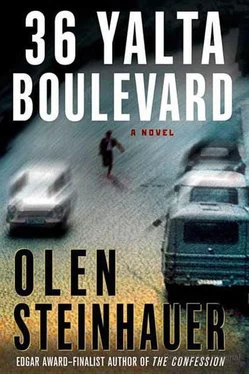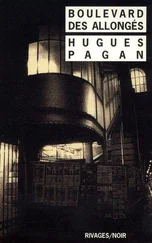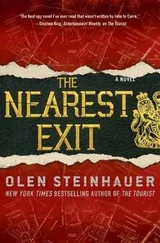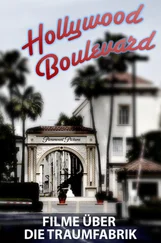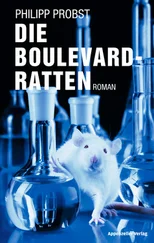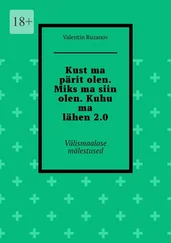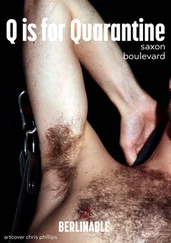Olen Steinhauer - 36 Yalta Boulevard
Здесь есть возможность читать онлайн «Olen Steinhauer - 36 Yalta Boulevard» весь текст электронной книги совершенно бесплатно (целиком полную версию без сокращений). В некоторых случаях можно слушать аудио, скачать через торрент в формате fb2 и присутствует краткое содержание. Жанр: Политический детектив, на английском языке. Описание произведения, (предисловие) а так же отзывы посетителей доступны на портале библиотеки ЛибКат.
- Название:36 Yalta Boulevard
- Автор:
- Жанр:
- Год:неизвестен
- ISBN:нет данных
- Рейтинг книги:3 / 5. Голосов: 1
-
Избранное:Добавить в избранное
- Отзывы:
-
Ваша оценка:
- 60
- 1
- 2
- 3
- 4
- 5
36 Yalta Boulevard: краткое содержание, описание и аннотация
Предлагаем к чтению аннотацию, описание, краткое содержание или предисловие (зависит от того, что написал сам автор книги «36 Yalta Boulevard»). Если вы не нашли необходимую информацию о книге — напишите в комментариях, мы постараемся отыскать её.
36 Yalta Boulevard — читать онлайн бесплатно полную книгу (весь текст) целиком
Ниже представлен текст книги, разбитый по страницам. Система сохранения места последней прочитанной страницы, позволяет с удобством читать онлайн бесплатно книгу «36 Yalta Boulevard», без необходимости каждый раз заново искать на чём Вы остановились. Поставьте закладку, и сможете в любой момент перейти на страницу, на которой закончили чтение.
Интервал:
Закладка:
And he hasn’t been arrested? Brano asked.
Colonel Cerny shook his head. He won’t be, not yet, because that’s what he must be expecting. His wife and son have joined him there. It’s the “why” we’re after. And who would be best equipped to go in and work on him?
Does this mean that I-
Cerny held up a finger. Temporary and unofficial reinstatement, Brano. These might come in handy. He reached in his pocket and handed over Brano’s old internal passport, marked with the crest of the Ministry: a hawk with folded wings, its head turned aside. The Lieutenant General wasn’t in favor of it, but I used my influence. And if you distinguish yourself, then there’s a chance-
“That your wife?” the waitress asked.
Brano closed the file. “Wife?”
“She’s pretty.”
“Thank you.”
Among the papers he found a brief typed summary of the file’s contents. Soroka had been born in 1934 in Sanok, to Wladislaw and Soft Soroka, farmers. His childhood was not mentioned, nor his parents’ 1947 transfer to the Bobrka Petroleum Works, though it was noted that in 1950, at sixteen, Jan was part of a Red Pioneer trip to the Capital to shake hands with General Secretary Mihai and see the sights. When he was twenty-three, Jan applied for and received permission to move to the Capital, where he advised the Central Gas Industry Committee as part of the industrial reform program Mihai had implemented the year before, in 1956, some months before his death. Before he disappeared, Soroka attended a conference in the spa town of Gyula on “the future of power in the socialist neighborhood,” attended by scientists from all over the Empire, specialists in gas, petroleum, and nuclear energy. But a week after it ended, his wife, Lia, filed a missing person’s report-Jan had never returned home. Militia Lieutenant Emil Brod investigated it-but without success. A line toward the end of the summary said, “ EXTERNAL ACTIVITIES: See attached.”
The Vienna report’s five pages speculated on Soroka’s date of entry into Austria-21 August, six days after Brano had left-and listed various places he had visited. The list was not exceptional. There were the regular sights-the Stephansdom, the MAK, the Schonbrunn Palace-and bars where one might run into one’s own countrymen, the most well known being the Carp, on Sterngasse. Then, on 25 August, a Thursday, he first entered the American embassy. During that five-hour visit, his hotel room was searched, but nothing of interest was found. Soroka returned to the embassy the next day, for only an hour. He then went to the Carp and got drunk.
On the following Monday, he appeared for the first time at the Raiffeisen-bank and, as far as the agents could discern from their vantage on the other side of the lobby, opened an account. This was never properly verified.
The report became sporadic after that, skimming over the following three months with summaries. Soroka began eating in specific restaurants and going to a limited number of bars-the Carp most often-and made brief friendships before dropping out of touch. It was the life of a dissatisfied exile. A couple of these acquaintances were agents who tried to get the story out of him, but short of a full interrogation there was no way to learn more. He was not considered important enough to abduct-which, the report speculated, was probably a mistake, because on 18 November he returned to the American embassy and did not emerge again.
Brano said, Who’s the Vienna rezident now?
Cerny pressed his lips together. Josef Lochert.
He — But Brano didn’t finish the sentence. After his expulsion from the Ministry and five months standing beside an automated belt, this was, finally, something. So where does Soroka say he’s been all this time?
The Comrade Colonel grunted his delight. You’ll like this. He says he’s been with a mistress in Szuha-a small village near the Ukrainian border. Guess her name.
I don’t know.
Dijana Frankovic.
Brano flinched.
Yes, said Cerny. I don’t know what the Americans are up to. They know we’re aware Soroka was in Vienna, but they’re willing to send him in with a terrible cover. We want to know what’s going on.
We?
Myself, and the Comrade Lieutenant General.
I see.
Don’t misjudge him, said Cerny. What he did to you was what he thought he had to do.
He wanted me in prison.
Colonel Cerny shook the newspaper at him. Well, when Josef Lochert reported that you’d attacked him and tried to sabotage the operation… what did you expect him to think?
Thank you again, by the way, said Brano. For keeping me out of prison.
You know I’d do much more for you. He stood up and looked through the glass at the factory that reached beyond his line of sight. Maybe this isn’t much better. He stuck out a hand, and Brano took it. So? Have I put something bright into an otherwise dull day?
You’ve put something bright into an otherwise dull life.
Cerny tossed him the Kurier. Enjoy the read. That stuff is no good for my bladder.
Brano accepted the gift of a small roll from his waitress and drove through the mountains to the other side, passing Turka and then moving farther north beyond the Carpathian hills. Giraltovce and Svidnik glided past, and after dark he reached Dukla. There was a new billboard outside town, briefly lit by his headlights: General Secretary Tomiak Pankov, bald head shining above a blue suit, stood smiling, arms out, while around him a ring of twenty children danced. Beneath: THE SOCIALIST WORLD IS THE WORLD OF PEACE.
With children dancing in his head, Brano drove north into the forest.
He could not see the drilling machinery in the dark, but he knew it was there, among the pines. As he emerged into the sparse, rolling terrain that led to the village, he had an overwhelming urge to turn back. A couple of houses appeared on the left-new, unfamiliar homes-but the graveyard on the right brought on the subtle push of nostalgia he’d been waiting for. He took a left at the crossroad and drove into the center of Bobrka.
It seemed that everything was already known to him in this town of less than four hundred; everything was tactile. The lit windows with their rough lace curtains, the tire-mangled road, the sharp grass springing up in his headlights, the fogged windows of the village’s one bar and the old man shivering outside in the cold with a beer in his hand, watching Brano’s Trabant roll past. Otherwise, the village was deserted. The bus stop was dark, though the yellow church with its statue of the Virgin Mary was lit by a floodlight. He followed the right-hand bend in the road, passing the small state store his mother ran, continuing without looking at the prim homes leading up to hers.
Brano was genuinely surprised to see the house as it had always been, small and remote from the road. After the dynamism of the Capital, he was in a place that lived as if nothing had changed in the last fifty years.
He parked in the gravel, took out his suitcase and briefcase, and paused at the gate. He took breaths of cold air until the red tint in his cheeks began to fade.
The kitchen light glowed from around the side of the house, so he walked through shrubs to the kitchen door. Whitewashed by the thin lace curtain, she was still heavy, her thick elbows on the table, staring at the playing cards laid out before her. She jumped at his knock.
As Iwona Sev approached the door she squinted, and he leaned close to the glass to help her out. Then her head slid back, eyes filling with light before the smile came. She pulled the door open and shouted, “Brani!”
He kissed her, then came into the kitchen, which had also never heard of progress. Wood-burning stove, gas lamp, a pail of fat in the corner. She held his face by the chin and turned it in the light. “You’re thin, thin. Are you all right? Is everything okay?”
Читать дальшеИнтервал:
Закладка:
Похожие книги на «36 Yalta Boulevard»
Представляем Вашему вниманию похожие книги на «36 Yalta Boulevard» списком для выбора. Мы отобрали схожую по названию и смыслу литературу в надежде предоставить читателям больше вариантов отыскать новые, интересные, ещё непрочитанные произведения.
Обсуждение, отзывы о книге «36 Yalta Boulevard» и просто собственные мнения читателей. Оставьте ваши комментарии, напишите, что Вы думаете о произведении, его смысле или главных героях. Укажите что конкретно понравилось, а что нет, и почему Вы так считаете.
